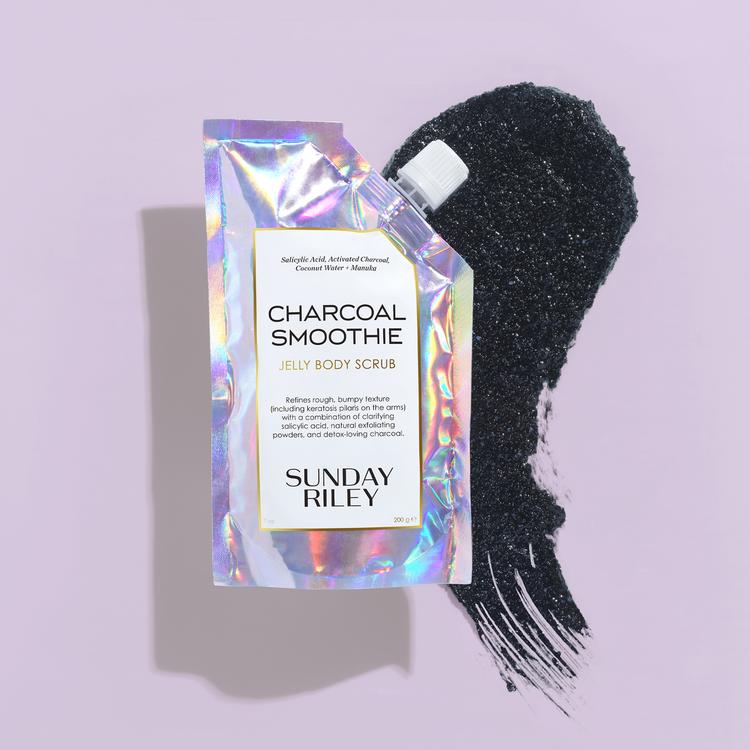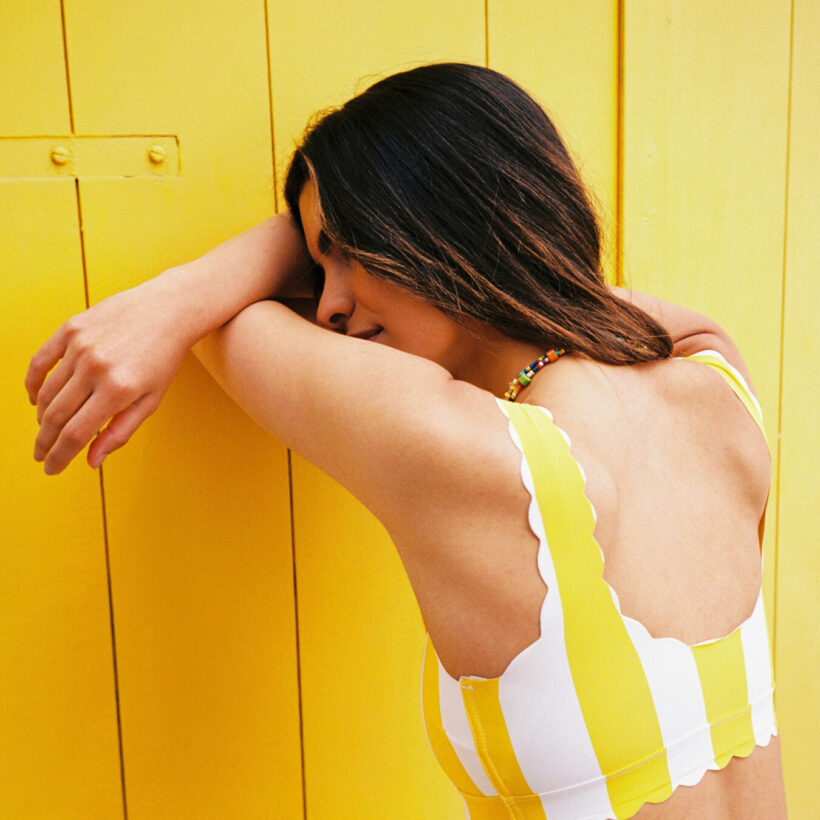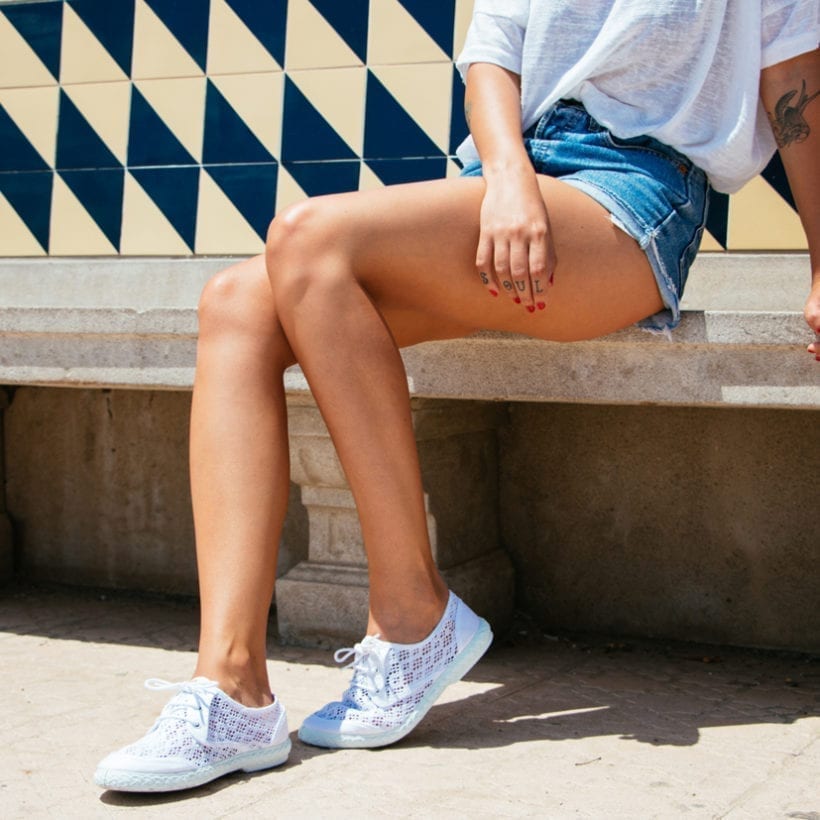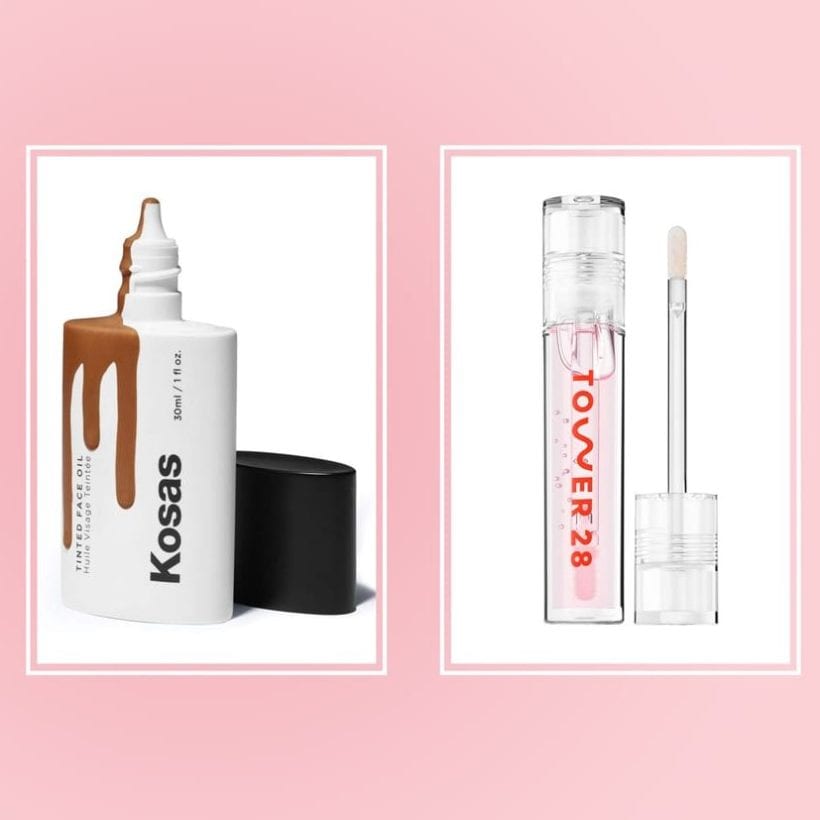There’s nothing quite as refreshing as diving into a swimming pool on a hot summer day. But since most pools, especially public pools, use harsh chemicals like chlorine to keep germs at bay, the relief from the sweltering sun comes at a cost to your beauty routine. It turns out that even just sitting poolside can have damaging effects. According to Dr. Nadir Qazi, DO, a board-certified physician, cosmetic dermatology surgeon, and owner of Qazi Cosmetic Clinic, chlorine gas can “harm your lungs in addition to your skin and hair.” He recommends outdoor over indoor swimming since the gas and fumes get easily trapped indoors, and you can’t beat the ventilation of an outdoor swimming pool.
So does this mean you should avoid fun summer days dipping into the pool? Not necessarily. But first, it’s essential to know how exactly chlorine affects your hair and skin so you can be smart about how to prevent damage. Below, our expert dives in (pun intended).

Meet the Experts
Dr. Nadir Qazi, DO is a board-certified physician, cosmetic dermatology surgeon, and owner of Qazi Cosmetic Clinic.
How Chlorine Effects Hair and Skin
It removes the natural sebum from your hair.
“When your hair comes into contact with chlorine, your sebum is removed,” says Dr. Qazi. Stripping the hair of sebum causes hair to become ultra-dry and incredibly brittle, which can lead to breakage and split ends. “Sebum is a natural waxy lipid that your body produces to keep your skin and hair healthy and hydrated,” Dr. Qazi explains. When our hair loses its sebum, it loses its natural moisture.
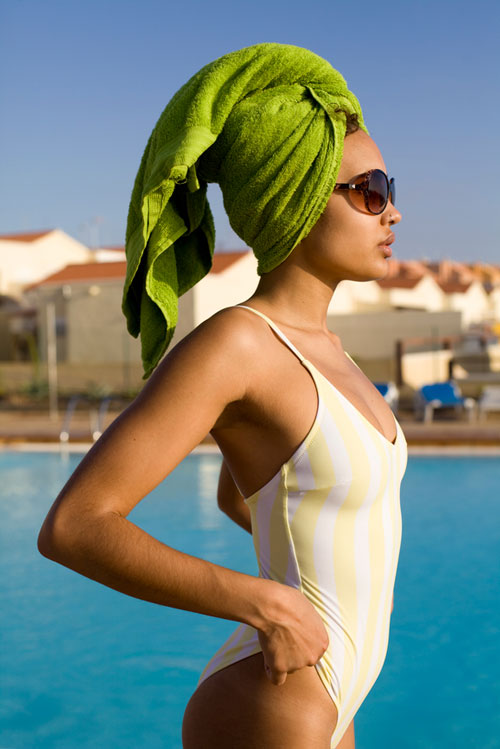
It strips your hair color.
Chlorine can also tarnish your hair color. “For example, if you have blonde hair, you may have a greenish tint from swimming in a pool,” says Dr. Qazi. “Moreover, if your hair is dyed, there is a good chance that swimming in a pool will speed up the fading process of your dye [due to the chlorine chemicals], even if the color is meant to be permanent,” he adds.
It dries out your skin.
By stripping your skin of its natural oils, chlorine breaks down its natural layer of protection, which “can cause deep irritation to your skin, sometimes resulting in contact dermatitis and even chemical burns,” says Dr. Qazi. “Contact dermatitis is a skin condition that happens when the body is exposed to allergens, chemicals, or irritants, and even friction,” he explains, adding that it can result in a painful, itchy rash. By disrupting your skin’s microbiome, chlorine can leave the skin more susceptible to bacteria once you are out of the pool. “It can also send your sebaceous glands [the glands that create your natural skin oils] into hyperdrive, trying to replace the lost sebum,” Dr. Qazi explains. “Combining overactive sebaceous glands and enlarged pores means a greater chance of blockages leading to acne,” he adds.
Since chlorine is so irritating, it can also trigger other skin conditions, such as psoriasis, rosacea, and eczema.
How to Prevent or Treat Chlorine Damage
“The best way to prevent chlorine damage to your hair is by wearing a swimming cap,” says Dr. Qazi. If worn correctly — a.k.a. all of your hair is tucked snuggly inside — it can prevent your hair from coming into contact with chlorine and, therefore, protect against chlorine damage altogether. If you don’t plan on doing a vigorous swim in the water, a chic shower cap like the Kitsch Luxe Shower Caps come in fun prints that look stylish while keeping your hair protected from the sun and chlorine.
That said, you can still protect hair from chlorine without a swim cap. “Treat your hair with a natural nourishing oil like jojoba oil to add a layer of protection between your hair and the chlorine,” says Dr.Qazi. “Before swimming, use a small amount of oil to form a barrier between your hair and the pool water,” Dr. Qazi explains, adding that you should give your hair about 30-minutes to absorb the oil before getting it wet in the pool water. Jojoba oil works well on post-pool strands because it has a waxy ester “very similar to the natural sebum our body produces,” says Dr. Qazi.

“After swimming, you should use chlorine-neutralizing shampoo to stop the damage to your hair further,” he adds, explaining that a chlorine-neutralizing shampoo “reacts with the chlorine to break down the chlorine molecule and remove chlorine buildup.” These shampoos often feature “a chemical or vitamin that will react with the chlorine molecule and alter its molecular state into different chemicals that are more easily washed away,” Dr. Qazi explains. Try Malibu C Swimmers Wellness Shampoo (the official shampoo of the USA Water Polo team!) to remove stripping pool elements like chlorine and copper.
In addition to hair, your skin also needs some replenishment. “You can prevent or limit chlorine skin damage in several ways. One way is to moisturize your body with a heavy lotion or sealant like coconut oil before swimming to give yourself some extra protection,” says Dr. Qazi. He recommends looking for one with dimethicone because it can form a seal between your skin and the chlorine. Post-swim, Dr. Qazi says to reach for moisturizers that restore your skin barrier. Sunday Riley C.E.O. Afterglow Brightening Vitamin C Gel Cream plumps skin with lasting moisture while highly potent vitamin C (THD ascorbate) brightens skin when the pool water leaves it dry and dull.

You also want to be extra mindful in the shower post-swim. Dr. Qazi says to take a lukewarm shower and use a gentle cleanser to remove the chlorine from your body. “The goal is to restore your skin’s pH level as quickly as possible,” he explains. Using a gentle cleanser to rinse away chlorine chemicals can help you achieve that balance. If your skin is feeling extra grimey, use Sunday Riley Charcoal Smoothie Body Scrub to gently remove unwanted chemical and environmental pollutants. After balancing your skin, Dr. Qazi recommends using a moisturizer with “plenty of nourishing ingredients like hyaluronic acid and jojoba oil” to quench dry skin.
“Beyond that, make sure you drink lots of water to rehydrate your skin from the inside out,” says Dr. Qazi. You can also consume more hydrating (and cooling) foods such as watermelon and cucumber to help with these efforts.
We only recommend products we have independently researched, tested, and loved. If you purchase a product found through our links, Sunday Edit may earn an affiliate commission.

